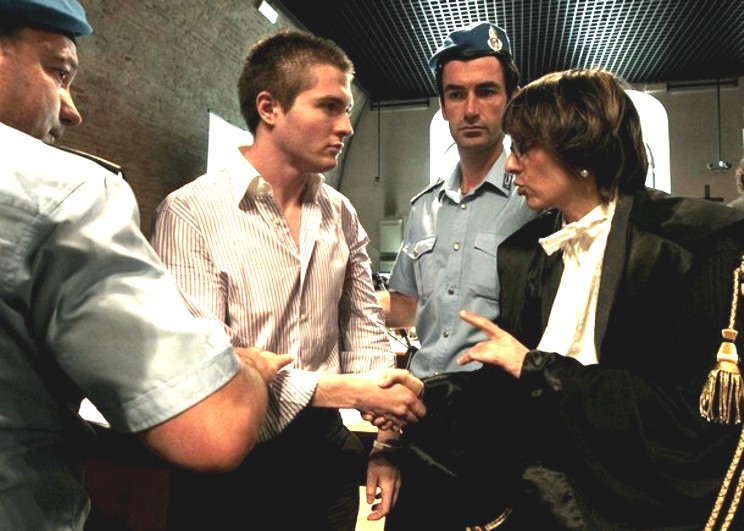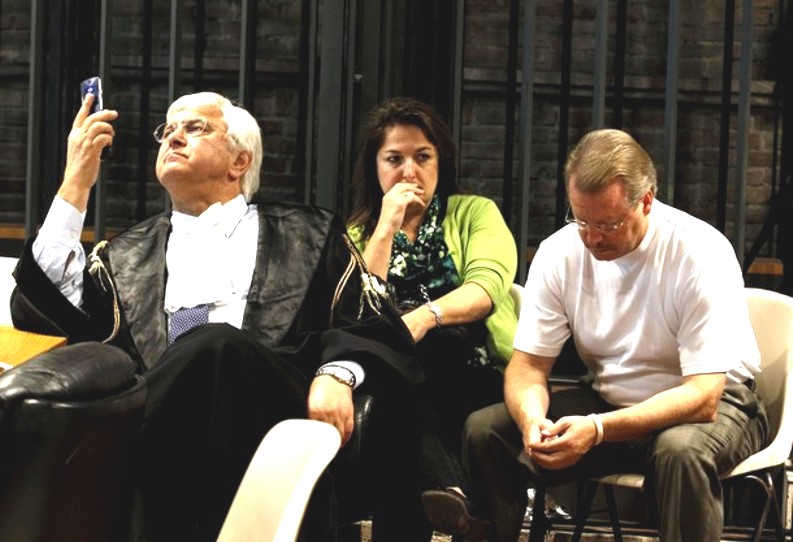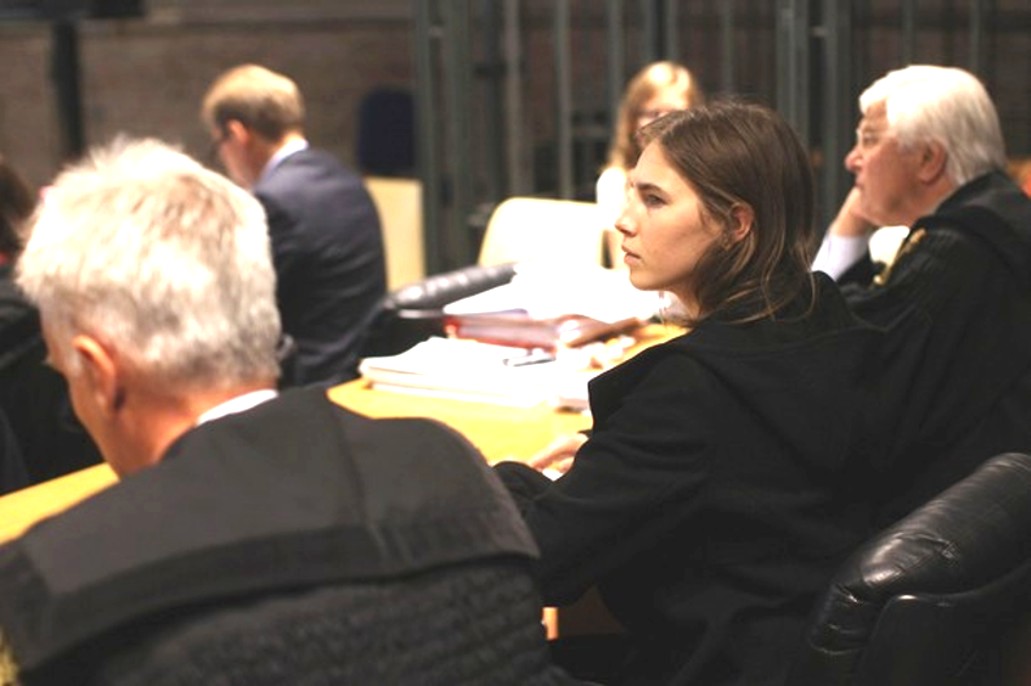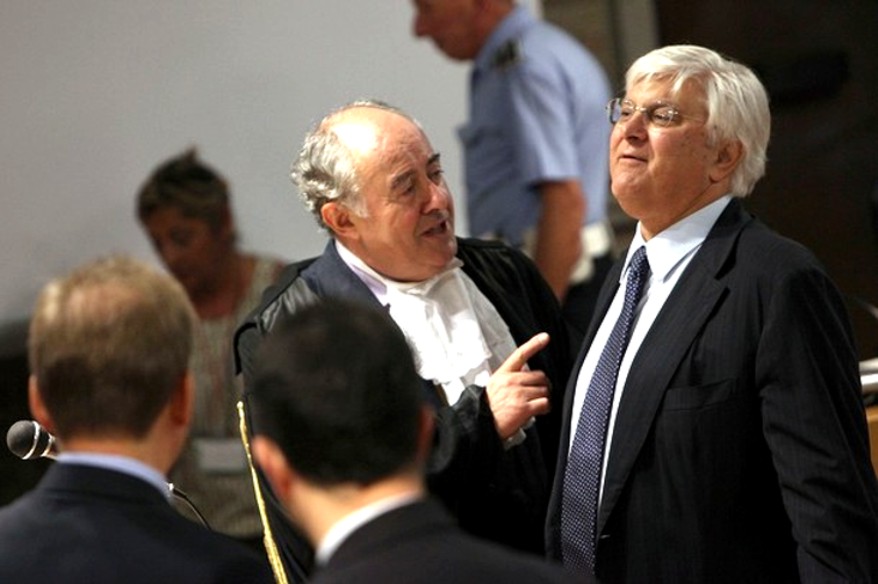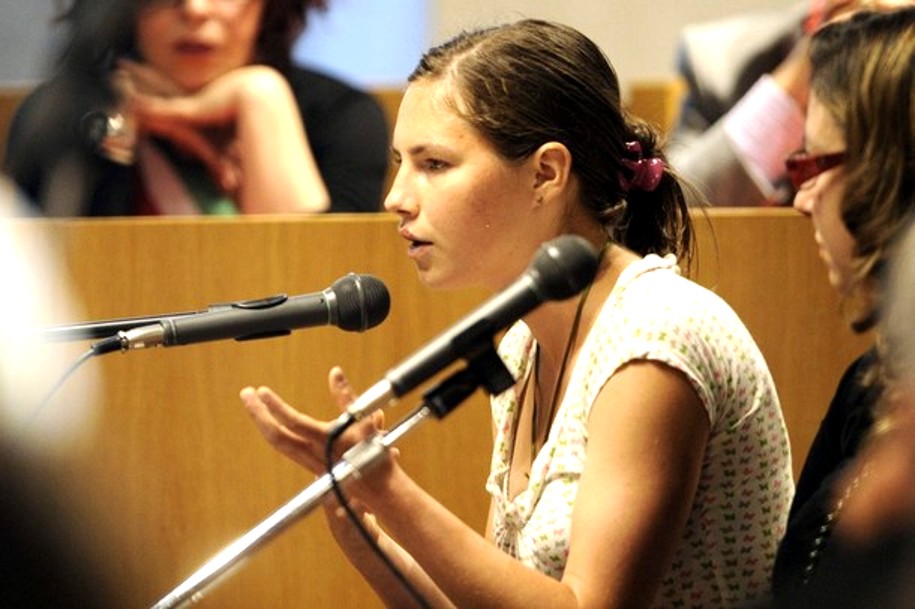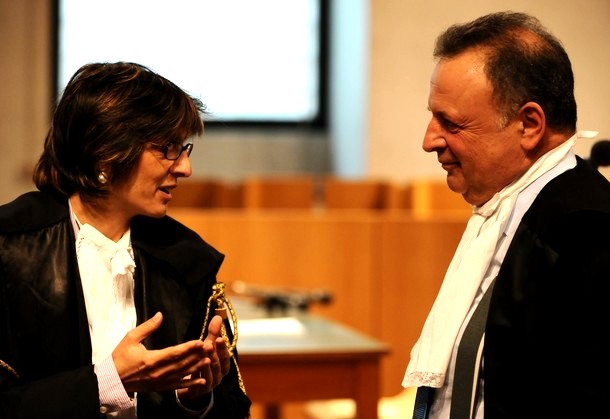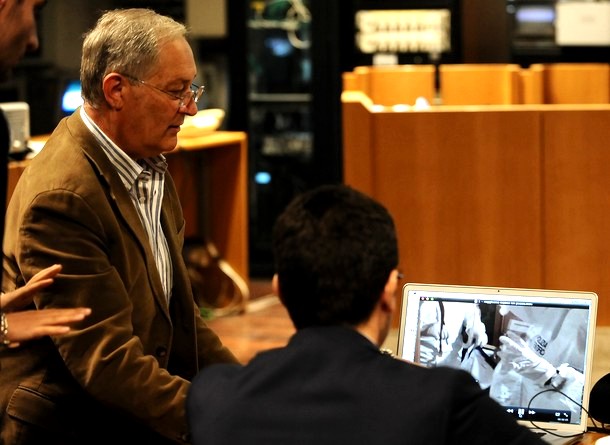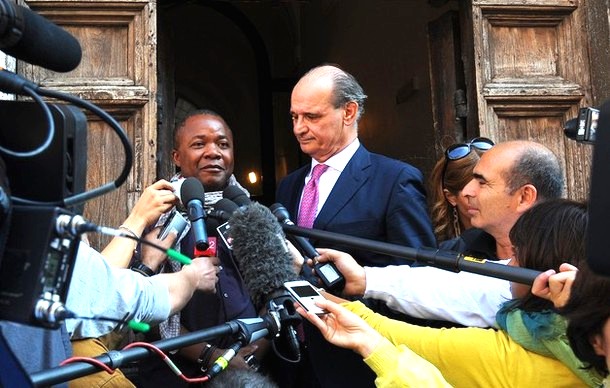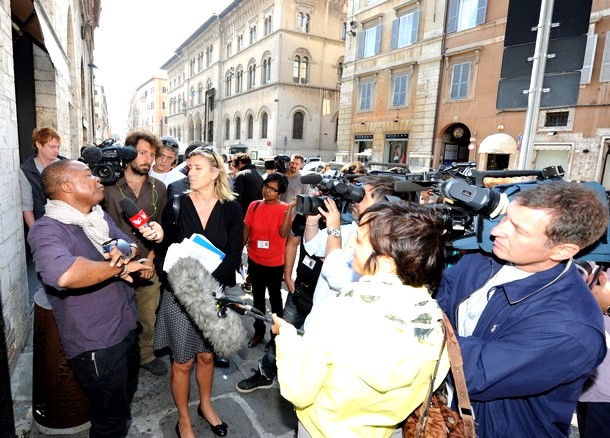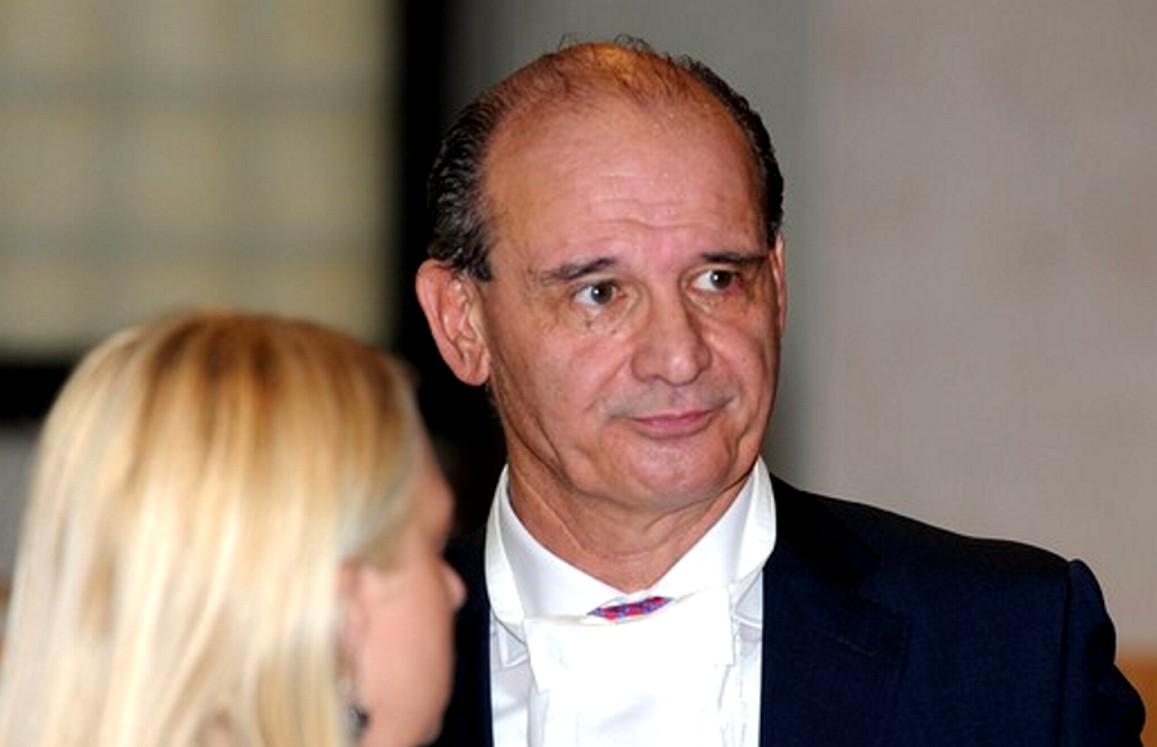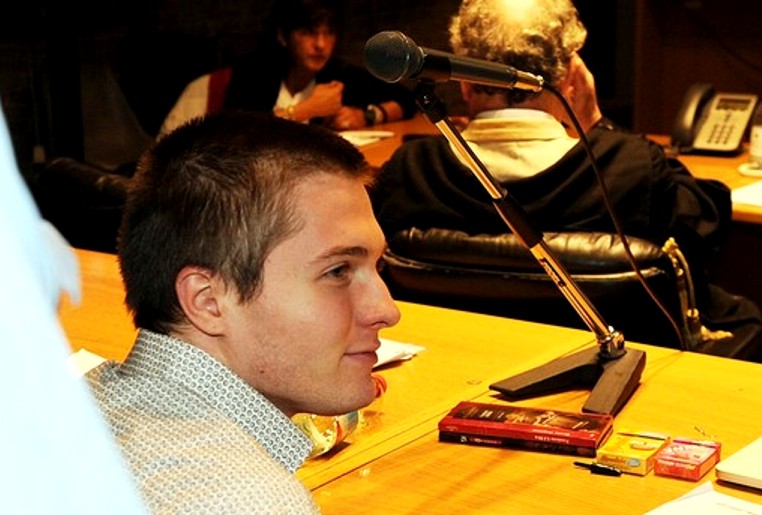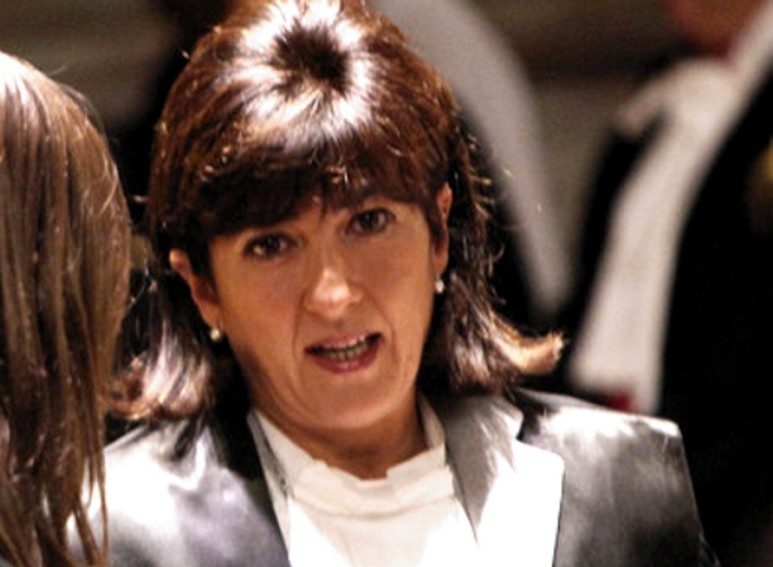
Friday, September 30, 2011
Nineteenth Appeal Session: The Prosecution Seems To Be Looking Confident In Court
Posted by Peter Quennell
Wednesday, September 28, 2011
Pseudoinnocence: Is This Possibly The Predicament Of Amanda Knox?
Posted by Vivianna
In a dissertation titled Pseudoinnocence ““ An Invitation To Murder, Barbara Shore explores the phenomenon of “pseudoinnocence” in American culture as an inadequate response to the “conflagration of violence that encircles us today.” These are her introductory words:
“America is a country long haunted by its pseudoinnocence, by its blinding prolonged naivete. We are a culture that closes our eyes to all that is too painful to see, persuading ourselves that we have escaped, that we are neither interdependent nor vulnerable, or that we are victims.
We cannot come to terms with our own unwitting complicity in the destructiveness brought to ourselves or others. Capitalizing on such naivete, we fail to see how such “˜innocence that cannot include the demonic becomes evil’ (Rollo May 50).” (Dissertation Abstracts International Section A: Humanities and Social Sciences Mar, 2001 Vol 61(9-A))
Ms. Shores’ words, although published six years before the murder of Meredith Kercher even took place, represent an eerily accurate description of Amanda Knox’s predicament, even reflecting some of the terminology employed in Attorney Carlo Pacelli’s exposition on September 26, during the closing portion of the first appeal trial. As a reminder, Pacelli, who represents Patrick Lumumba in his civil suit against Knox, pointed out that Knox “has a split personality, fresh-faced, the daughter everyone would like, Saint Maria Goretti, and then with her histrionic side [she is] an impostor, she is a she-devil, satanic, diabolic, addicted to borderline behaviour.”
Although Pacelli’s words have been seen by some as too harsh, they carry a heavy implication mirrored in the above quote from Shore ““ that “innocence that cannot include the demonic becomes evil”; in other words, that if Knox cannot reconcile her two sides and seek atonement, she has no hope of redeeming herself as a human being.
I have argued before, in a comment posted here on the TJMK board, that Knox is not likely to make a confession in the near future due to the pressures exerted by her family’s innocence campaign. The innocence campaign is, in my opinion, just one of the factors which prevent Knox from admitting her direct involvement in the crime against Meredith Kercher.
The other factors may include her failure to reconcile the two parts of her persona (innocent, carefree, kind, compassionate young woman versus “diabolical” murderer) and perhaps a culturally-engrained inability to accept involvement in a destructive act. The discussion of these latter factors is perhaps best left to someone with formal training in psychology or sociology. What I would like to enlarge upon is my conviction that there is a direct correlation between the strength of the innocence campaign and Knox’s unwillingness to admit guilt.
I would like to draw your attention to a conversation between Knox, her mother (Edda Mellas), and her father (Curt Knox) which took place in the early days of the investigation, when Amanda had already been detained. This conversation will be well-known to those who have been consistently following this case as evidence that, in the early stages, Knox may have been inclined to give a confession. I have chosen not to include it, but it is readily available on both TJMK and PMF.
The reason why I believe this conversation to be so important is not only because it might contain the beginning of the confession, but also because it highlights the involvement of her family in defining her position. I would argue that, had Knox been left to her own devices, she might have cracked in the early stages and given an accurate description of that night’s events, saving both herself, her family, the victim’s family, and anyone involved in the trial considerable grief, time, money, and effort.
At that particular point in time, she may not have been as psychologically divided and conflicted, and she may have had an easier time accepting her criminal side and perhaps moving on to experience positive changes. It is, however, her parents’ firm belief in her innocence and in her inability to commit such a heinous crime that has consistently mired her in a difficult position.
As we well know, the Knox-Mellas family hired a PR firm, Gogerty-Mariott, to clean up Amanda’s image after unflattering stories started appearing in European tabloids. The PR campaign has grown exponentially from a few stories about Amanda’s childhood, complete with baby pictures, to what I consider to be a falsification of public opinion.
On the one hand, there is a concerted effort to offer inaccurate information about existing evidence (limiting the crime scene to Meredith’s room, stating that there is no evidence linking Amanda and Raffaele to the murder, pushing Rudy Guede as the “lone wolf” assassin, etc.), which is then fed to news outlets unwilling to do their own research and pushed upon the unsuspecting public via books, blogs, and forums. Then comes the even more insidious effort to falsify the public’s response to these stories, by hiring posters to write positive reviews for FOA books, post positive comments to inaccurate stories, and shout down any reasonable opposition.
Of course, this entire effort does not come cheaply, and rumors say that the PR campaign’s tab is around one million. This is an enormous debt to place on the shoulders of a young woman who already needs to contend with the guilt of having committed an incomprehensible, heinous, violent crime. While it is difficult to feel sympathy for any of Meredith’s killers, I find it impossible not to feel a certain amount of compassion for Amanda, who most likely never asked for this campaign to be initiated. How could she admit her role in this crime when a million dollars has already been spent to trumpet her innocence?
In addition to the material aspects, there are social and psychological aspects to contend with. While many of the FOA members are paid for their public appearances and statements (and may not harbor any personal opinions about the case), there seem to be individuals who are supporting Amanda’s innocence out of personal conviction. Some of them may have even donated money to help her family. How could she disappoint everyone who invested money and time into supporting her, from her own family to charitable strangers? How could she look them in the eye, after four years of lies and obfuscation, and admit that she was terrified of being punished, or incapable of seeing herself as a murderer?
Peter Quennell has suggested to me that this may be an example of “path dependence,” a concept used in both economics and social sciences to describe a scenario in which current actions and decisions are inexorably determined by past decisions. While my personal knowledge of path dependence is limited, I think that it is certainly applicable in this case and that it can be traced back to the prison conversation discussed before. During the conversation, Amanda’s parents indirectly communicated to her that the course had been set ““ that the legal team would handle all questions and that she was not to communicate her thoughts without supervision; also that a confession would be unacceptable because she was undeniably innocent.
As to why her family took this position, I think we can find the answer in the concept of pseudoinnocence ““ the inability to accept responsibility for and involvement in a terrible event, accompanied by a forced distancing from anything that could be considered troubling.
It is not a coincidence that Amanda has been consistently portrayed as a victim of the supposedly corrupt, medieval Italian justice system, as someone who has been “railroaded” in a “third-world” country, as her supporters want us to believe. It is more comforting to become a victim than to accept responsibility and acknowledge that Amanda’s problems may have started at home, long before she was on a plane for Perugia. I believe that the innocence campaign is not only meant to exculpate Amanda, but to also exculpate her family from any perceived contributions to the formation of a murderer.
As long as Amanda’s family continues to invest so much money and effort into supporting her innocence, and to maintain so much publicity around her case, I believe that any professional attempts to help Amanda admit her involvement will prove ineffective. This entire undertaking, combined with her own psychological dividedness and any cultural influences, is placing an enormous amount of unnecessary responsibility on Amanda and displacing a more appropriate type of responsibility.
Amanda, at this point, should feel responsibility towards Meredith and Meredith’s family primarily. While the murder itself cannot be reversed and no true solace offered, a confession would offer a certain amount of closure to those who knew and loved Meredith. Instead, Amanda’s sense of responsibility is being artificially redirected to not disappointing her own family and supporters, and to not betraying the trust they have placed in her innocence. Aside from being hurtful to the victim’s family, this situation is also damaging for Amanda herself, as it’s setting her on a path of continued “evil” rather than one of heal
Tuesday, September 27, 2011
Seventeenth Appeal Session: Tough Day Ahead For Raffaele Sollecito’s Lawyers In The Minefield
Posted by Peter Quennell
Today it will be Giulia Bongiorno and Luca Maori for Raffaele Sollecito. Important considerations to bear in mind:
1) There are still all these open questions assembled by lawyer and main poster SomeAlibi and Sollecito chose not to address them on the stand.
2) The Supreme Court has definitively shut down the argument of a possible lone wolf perpetrator and Guede in court accused Sollecito to his face.
3) Attempts to show that Guede did it with others (Alessi’s testimony) or two or three others did it (Aviello) both descended into farce.
4) A staged attempt by Bongiorno using a staff member to try to scale the wall of the house to Filomena’s window descended into farce.
5) Sollecito referred to Amanda Knox as a liar in his third alibi and in effect implicated her by saying that on the night she was absent for four hours.
6) Solleito has still not explained his phone record or computer record or how his DNA could have got onto Meredith’s bra clasp.
7) Sollecito has still not explained the other physical evidence tying him to the scene: how his bloody footprint ended up on the bathroom mat.
His family faces a trial for releasing an evidence tape to a TV station, and for attempting to subvert justice by involving national politicians. And the family have still not rebutted Aviello’s charge that a bribe was waved at him to testify.
Not a pretty mess, by any means. Good luck, Bongiorno and Maori.
Sixteenth Appeal Session: Lawyers For Patrick Lumumba And Victim’s Family Weigh In
Posted by Peter Quennell
1) Lawyers for Patrick Lumumba
A translation of the Umbria24 TV station report kindly provided by main poaster Tiziano.
MEREDITH, LUMUMBA’S LAWYER: “AMANDA IS DIABOLICAL” PATRICK: “I HAVE RELIVED THOSE DAYS”
“PATRICK IS THE SECOND VICTIM IN THIS CASE”
By Maurizio Troccoli
The civil parties are playing the last cards too in the Mez trial, represented by the lawyers of Meredith Kercher’s family and those of Patrick Lumumba, the young man who ended up in gaol with Amanda and Raffaele, because he was accused of being the author of the murder by the young American.
A few days before the sentence, which should come on Monday, and the reconstructions of what happened that night between the 1st and 2nd November, 2007 in the cottage in via della Pergola in Perugia, go on stage. A bloody murder which has seen the two ex-lovers condemned to 26 years prison for Amanda, and 25 for Rafaele at the first stage [trial}.
Patrick Lumumba was set free after a few days of detention thanks to an “iron clad alibi” which put him in a different place from “the house of horrors”, that is to say in his night spot, together with a Swiss professor, Roman Mero, who witnessed this, thus helping the young man to get back his freedom.
That testimony was sufficient to convince the magistrates - notwithstanding the accusations of Amanda - of his “complete non-involvement in the facts”, which originated in the questioning at the Perugia police headquarters on November 6th, 2007.
Patrick is still waiting for justice to be done, to be compensated for what was taken from him, for payment for the person who was stained by such a serious crime which sees him as “the second victim of this tragedy”, as his defender Claudio Pacelli said this morning. “Patrick has paid a lot, not only for his imprisonment but also for the damage to his image, said Pacelli. “My client ended up in the newspapers and on TV all over the world as the author of the murder of the young Englishwoman.”
“During the appearance of my lawyer - [Patrick] says ““ it is as though I had gone back, reliving that really sad period. We hope that justice is done. Today I relived those moments - the night when the professor came to the pub saying that he wanted to say good-bye because that next day he would be going back to Zurich,” Lumumba said, “However he came to save me, with neither I nor he realising this.”
“Amanda falsely accused an innocent person - lawyer Pacelli affirmed - exclusively to avoid being discovered. A classic scheme. Amanda is a consummate actress, a very intelligent girl, astute and cunning. One who really knows how to inspire the emotions of whoever is listening to her.”
And the fault of what happened to the damage of Patrick resides completely in “the young American, Amanda”, whose profile the lawyer drew in court, defining her “an explosive mixture of drugs, sex and alcohol.”
He added, “Quite the opposite of sweet, she has a split personality, fresh-faced, the daughter everyone would like, Saint Maria Goretti, and then with her histrionic side [she is] an impostor, she is a she-devil, satanic, diabolic, addicted to borderline behaviour.
What Amanda says when she claims that Patrick’s name was suggested to her by the police is a huge lie. She was the one to arbitrarily choose to point to Patrick as the guilty on, in order to distance herself from suspicion,” the lawyer said further.
2) Lawyers for the victim’s family
[translation to follow]
Monday, September 26, 2011
Sixteenth Appeal Session: Images Of Main Participants Before Start Of Court Today
Posted by Peter Quennell
Saturday, September 24, 2011
Fifteenth Appeal Session: Prosecutor Manuela Comodi Starkly Explains All The Forensic Evidence
Posted by Peter Quennell
This is a translation of key parts of a detailed report from the AGI news service - the excellent reporter is not named.
On Ms Comodi’s opening remarks to the court.
In Perugia the hearing of the appeal of Amanda Knox and Raffaele Sollecito, in the first instance [at trial] convicted for the murder of Meredith Kercher, has resumed. This morning, the prosecutor Manuela Comodi began her part of the indictment.
“Regardless of the scientific evidence, your decision can only be the confirmation of the decision at first instance [at trial],” the prosecutor said. During the day the prosecution will make its request for a tougher sentence for the ex-lovers who are present in the courtroom next to their defence teams.
Ms Comodi on the strength of the forensic evidence.
“Quite apart from all the scientific evidence, the outcome of this process can only be at least the confirmation of the conviction of first degree”...The prosecutor judge then began to attack the independent expert report on the traces of DNA ordered by the Court.
“That ploy may have led you to believe you do not trust the results for the knife proposed as the murder weapon and the hook of the bra worn by the victim when she was killed. Those conclusions are strongly challenged by the prosecution.” Then Comodi talked of “the awkward performance of experts who have betrayed your trust… [with] their absolute inadequacy and incompetence.”
She then mentioned the lack of experience in the field of the experts appointed by the Court. “Would you trust your daughter’s wedding to a cook who knows all the recipes but has never cooked?”. In the initial phase of her indictment the prosecutor also mentioned the process carried out in England to indict Danilo Restivo…
The Guardian has a good report on how Danilo Restivo was caught in part by incriminating DNA some TEN YEARS after his crime.
And Ms Comodi on the DNA on the knife and bra clasp.
“Who wielded the knife [that killed Meredith Kercher] was Amanda Knox.” The prosecutor said in court, mimicking the way according to the defense reconstruction that knife was contested by the murderer of Meredith.
“They will tell you, She used it at some other time while staying at Sollecito’s house, but Amanda’s DNA was found in the wrong place for normal use. Give it a try, you will see that in cutting bread or meat the hand rests on the back, not there.”
“Starch on the knife? It could come from the powder present on the “vast majority” of rubber gloves used by personnel involved in investigations.” The prosecutor was recalling the words of a senior advisor to the defense of Amanda Knox, according to whom the starch was derived from the cutting of food such as potatoes and is a sign of lack of washing of the blade on which should have been found traces of blood of the victim if it was used for the crime….
“Talc is present on most sterile disposable gloves, such as those used by the scientific and the Flying Squad in Perugia. It is totally unfounded, the thesis of the non-washing of the knife.”
“The hook of the bra collected 46 days after being found missing? What of the DNA of Elisa Claps [in the Danilo Restivo case] analyzed after nearly 20 years? There is no way this could be contamination because Sollecito had not since been in the house.
Here is a very strong report from Il Mattino which after mirroring the AGI report above adds this:
“In addition to the knife and the bra hook there are other tracks that connect the presence of Amanda Knox and Raffaele Sollecito to the crime scene” said the prosecutor in her indictment.
“Traces of the mixed blood of Meredith and Amanda have been found in the bathroom, where there was an imprint of a foot of Raffaele Sollecito in Meredith’s blood. Footprints of Raffaele and Amanda in Meredith’s blood were found using Luminol in the hallway and the room of Amanda.”
The prosecutor pointed out that under the bed, in Meredith’s room, the lamp of Amanda was found. In Meredith’s room there already was one lamp. Amanda’s lamp was there “because they had to find something to take away, maybe a bracelet or a ring that Amanda might have lost.”
And the prosecution concluded by asking for life sentences and some solitary confinement for Sollecito and Knox as the crime was “aggravated - carried out for trivial reasons” and asking for the exclusion of the mitigating factors that Judge Massei had allowed.
Some of the Italian media reports carried headlines quoting Ms Comodi saying “They killed her for nothing”.
Good Reports By Seattle PI And Daily Beast On Mignini Summarising The Evidence Presented At Trial
Posted by Peter Quennell
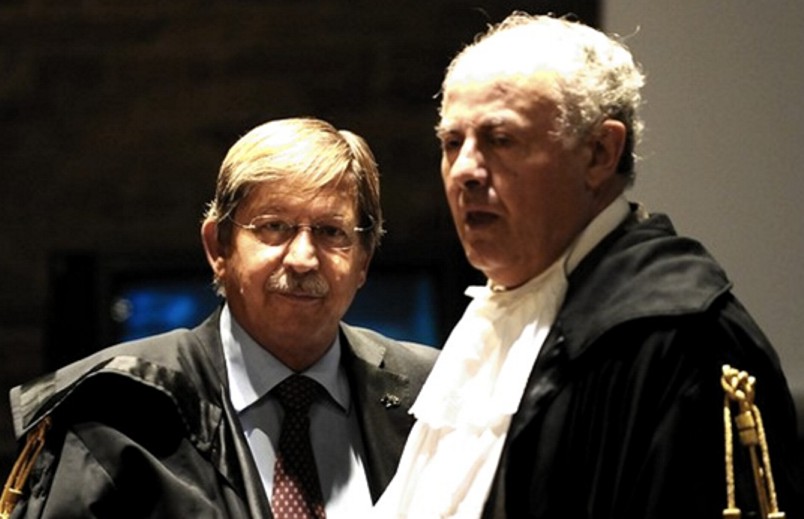
[Above: The indomitable victim’s proponent Giuliano Mignini preparing for court today with Giancarlo Costagliola]
Click the image above for Andrea Vogt’s report on Mr Mignini’s afternoon in court. Tough points Mr Mignini made:
“They know the truth because they were at Via della Pergola along with Rudy,” said Prosecutor Giuliano Mignini said emphatically, pointing to Knox and Sollecito in his last remarks to the court. “Not only the young man of color should pay.”...
[Mr Mignini] sometimes seemed to obsess on small and bizarre details, but at other times showed an incredibly effective use of courtroom oratory. Just before showing the jurors gruesome autopsy photos of Kercher’s wounds, for example, he told them softly how he would never forget “the wide open eyes of the victim and the composed, immense pain of her parents.”
He reminded the appeals jurors that it was not a U.S. court, but rather one in the Italian republic and urged them to ignore “improvised detectives who give their superficial opinion from 10,000 kilometers away.”...
[Mr Mignini] went over all the witness testimony, described how a break-in in the apartment Kercher and Knox shared had been staged and frequently cited Knox’s own statements on the stand during her first trial, especially on the topic of a large drop of Knox’s blood on the bathroom faucet and mixed traces of blood and DNA of Kercher and Knox in the bathroom.
Highly worth reading the entire thing. Barbie Nadeau covers the same ground equally well in the Daily Beast and notes that today could be the final scene changer. The embattled Sollecito defense counsel Giulia Bongiorno was reduced to making this preposterous claim:
Sollecito’s attorney Giulia Bongiorno told reporters that Mignini was desperately clinging to old arguments because the independent experts’ report had demolished two key pieces of evidence : a knife and a bra clasp.
Demolished?! The independent experts didn’t retest the DNA material with modern techniques when they could and should have and they even admitted that was Meredith’s DNA profile the scientific police had produced the first time around.
They ended up looking weak and evasive. Hardly the silver bullet Bongiorno wants.
By the way, no sign of Mr Mignini being fazed by the presence (surely unhelpful to Knox and her lawyers) of the muddled “ex FBI agent” Steve Moore whose bizarre and often defamatory takes on the case and Italian justice officials we have again and again shown to be wrong.
Perhaps Mr Mignini should ask Steve Moore to publish his own detailed resume. So far, all requests for it have been stonewalled.
Friday, September 23, 2011
Umbria’s Attorney General Giovanni Galati: A Tough New Presence In The Courtroom
Posted by Peter Quennell
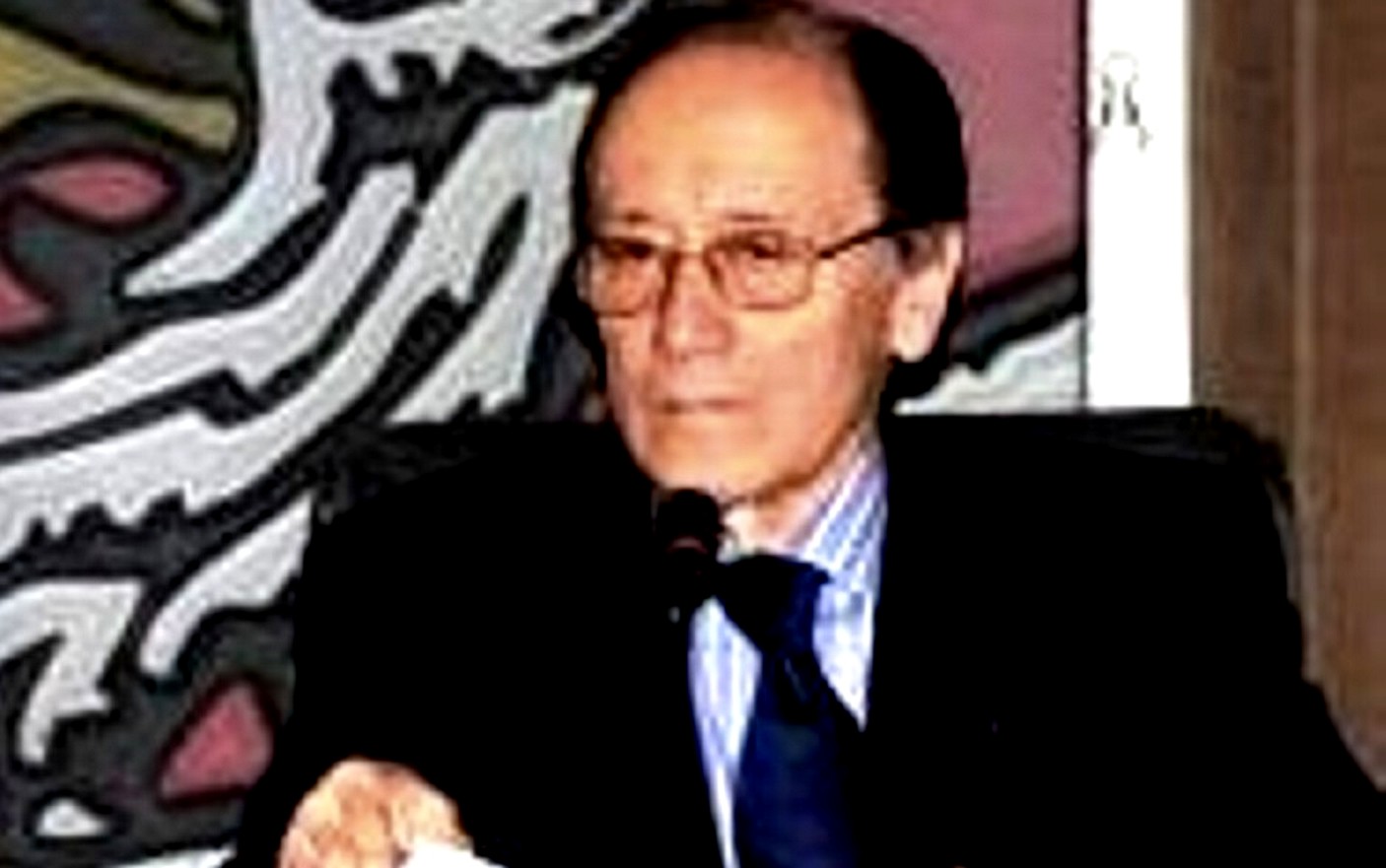
[We are told that this is AG Giovanni Galati at the recent justice info system announcement]
Italian media note that the defenses are up against quite a powerhouse prosecution team.
The media have observed that Giovanni Galati, the new Attorney General of Umbria, is in the court to give his full support to the case made by his colleagues.
He was formerly a a Deputy Attorney General with the Supreme Court of Cassation in Rome and will know everything there is to know about winning appeals.
He is sitting next to his Deputy Attorney General, Giancarlo Costagliola, the lead prosecutor for the appeal.
Fourteenth Appeal Session: Italian Media Describing Very Tough Prosecution Opening
Posted by Peter Quennell
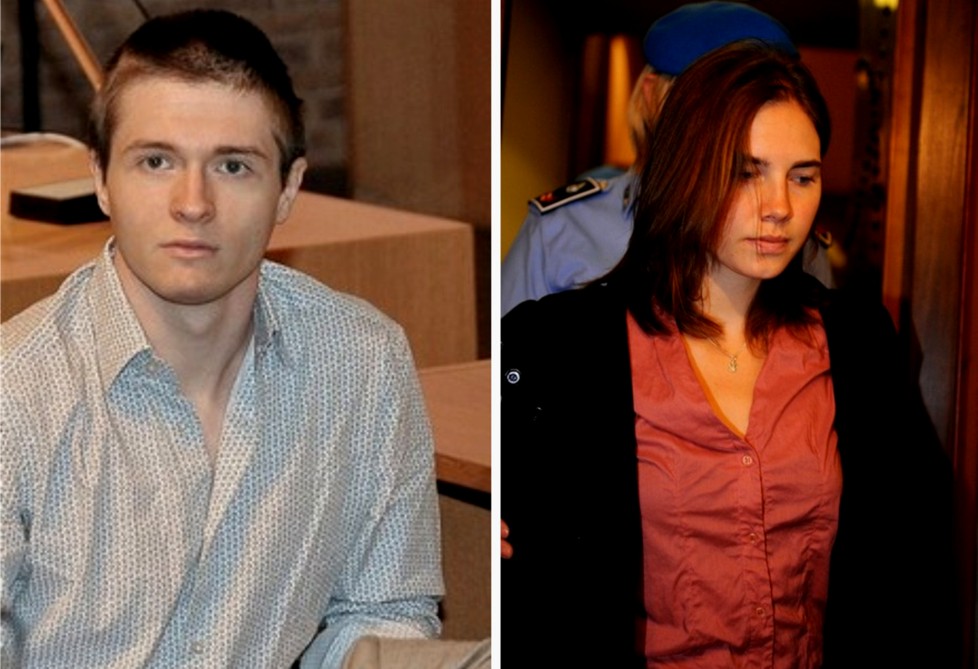
First good report on the opening remarks by Mr Costagliola is from RAI News:
Hard, harsh, and direct. The [Deputy] Attorney General Giancarlo Costagliola this morning attacked head-on the findings of the independent DNA experts in the appeal of Amanda Knox and Raffaele Sollecito in the murder of Meredith.
Moreover the homeless man who claims to have seen Amanda Knox and Raffaele Sollecito not far from the murder house on the evening of 1 November 2007, when Meredith Kercher was killed, is ‘“credible and reliable”...
Costagliola described the skill of the original DNA experts of the Court…The Attorney General also spoke of the “absolute certainty” of the analysis of traces of DNA detected by experts of the Court on the knife found to be the murder weapon. “A re-examination of the DNA by the prosecution was refused [by Judge Hellman] although it was the first request put to the Court.”
“Denying the presence of the DNA of Meredith Kercher, and Raffaele Sollecito on the knife and bar hook is a falsification of scientific reality” said the prosecutor, still attacking the expertise of Professors Vecchiotti Carla and Stefano Conti, which questioned the work of the forensic team…. “Professors Vecchiotti Carla and Stefano Conti had refused without any reason to analyze traces highlighted on the knife, which in 2007 were not analyzed because ‘there was no machinery suitable “.
“I want you to decide, you judges, if you feel a little for the parents of Meredith Kercher, a young, discreet and serious woman who these “good” kids from good families are prevented from living.”...
For Costagliola “there was an almost obsessive campaign by the media, the press and television that made the audience feel a bit like everybody is parents of Amanda and Raffaele, two kids from good families kept in prison because of the fury of a prosecutor.”.’
La Nazione reports that Mr Mignini in his opening remarks observed that he will never forget Meredith’s staring eyes. He’ll remember them for the rest of his life. He pointed out that 22 judges had already agreed with his reasoning.
And from a long report by Phoebe Natanson of ABC News:
Italian prosecutors argued today that American student Amanda Knox should be kept in prison and displayed a series of bloody crime scene photos, including gruesome close ups of murder victim Meredith Kercher’s wounds.
The bare knuckle tactics by the prosecutors comes on the final leg of an appeal by Knox, 24, and her former boyfriend Raffaele Sollecito, 27, who were convicted in 2009 of killing Kercher. There has been growing speculation that Knox and Sollecito could win their appeal and be freed because court appointed experts have raised damaging questions about the prosecution’s DNA evidence.
Knox , serving a 26 year prison sentence, today seemed to reflect that hope that she could be released, as well as the worry that her hopes could be crushed. She appeared tense and anxious as she entered the courtroom in Perugia, Italy, for the start of summations. She barely smiled at her family who have gathered in Perugia for what they hope will be a final time.
As Knox walked in, her mother Edda Mellas was heard to say, “It looks like Amanda isn’t sleeping well.”...
Prosecutor Giuliano Mignini presented the court with a slideshow of photos that included pictures of bloodstains in the house as well as photos of Kercher’s slashed body. The blood-filled pictures included close-ups of the wounds…
[Prosecutors] also appealed for the jurors to not be swayed by the press coverage that has been critical of the prosecution’s handling of evidence and what is perceived to be a growing sentiment for Knox and Sollecito. Mignini called it “media clamor,” and added, “This is not a media fiction… This case has to tried and decided here.”...
“Don’t commit grave error..it would be unforgivable,” Mignini warned. “It’s not just about the knife and the bra clasp. There are lots of other things.”
How Things Seem To Be Stacking Up As The Appeal Summations Get Under Way
Posted by James Higham

[Above: the media presence in court before the trial started in January 2009]
Cross-posted at TJMK’s invitation from my own website Nourishing Obscurity.
The interview with juror Jennifer Ford on the Casey Anthony outcome was quite fascinating because her decision was based on something we’ve been arguing about for a long time ““ circumstantial evidence.
There’ve been classic cases at Orphans of Liberty where expert testimony described actual evidence found and tested and what conclusions were drawn from that. When you get up to 12 or 13 experts all saying exactly the same thing and some of those were actually on site, then what do you conclude?
Against that, you have that comment that “circumstantial” is usually all you have in a murder. By definition, the murderer does not oblige by taking snapshots or videorecording the event.” Often he or she does everything in their power to cover it up.
It’s all very well for a Columbo to waltz in and cleverly trap the murderer he’s fixed on but in most cases, it’s the result of painstaking work building exhibits and other evidence which fits together. True, when the police try too hard, you can get frame-ups. But what the pro-Knox machine are making out ““ that “a stream of lies” has come out of Mignini’s office, while conflating that with his provisional conviction over another case - concluding from that that Knox is innocent, they’re open to challenge.
Sorry ““ it doesn’t work that way. Mignini has not been officially charged but has only been accused by the Knox camp of failure in his investigation and as for that other case, here’s what the Times said:
Mignini was convicted by a Florence court of exceeding his powers by tapping the phones of police officers and journalists investigating the still unsolved “Monster of Florence” serial killings between 1968 and 1985.
Phone tapping. Getting at the truth by any means possible. The Knox defence, of course, has not used this separate issue but the Knox parents media machine has and it’s landed them in a slander trial, following this case.
Mignini was most surprised, in fact, that this conviction came up now, during the Knox trial. Why now? Who then is Judge Hellman? Is there anything in his appointment? You’d have to say no but keep it at the back of the mind.
Coming back to Jennifer Ford, what struck me was how tough it was for her because they did not have absolute final proof. They did have so much evidence of what happened ““ the car trunk, the remains in the swamp and so on, the forensic evidence, so much so that it was pretty much a foregone conclusion, unless some other person or persons unknown had come into it.
Yet they did not convict, on the grounds that the prosecution had not finally proven, i.e. they didn’t have Casey Anthony at the scene, through an eyewitness, actually doing the murder.
In the Knox case, they have far more. The Supreme court has unequivocally said there were three people and what’s more has named each of them. On forensics alone and ignoring the conflicting evidence given by the defendants for now, the independent experts conceded that was Knox’s DNA on the handle and Meredith’s on the tip, as well as the mixed blood which neither side seemed to run with.
The independents ““ who seemed hardly that ““ did not destroy Dr. Stephanoni who waded in and presented exactly how the tests had been conducted, the one on the knife done in a one-off, with a member of the defence present who saw Meredith’s DNA appear.
Then you get to the other evidence:
(a) Why did Amanda admit to her parents in a recorded conversation that she was very very worried about that knife?
(b) Why did she concoct that fantasy about Sollecito’s having (maybe) put the knife in her hand while she slept & pressed her hand to give her fingerprints to the handle? And Sollecito and the bra clasp, in conjunction with his footprint on the bathmat.)
(c) Why did Sollecito explain to the police that he had accidentally pricked Meredith’s hand while cooking?
And so on. The tapped conversations.
Edda: Like I said, the lawyers believe that they are doing it on purpose, because they sure have nothing, so they are trying to put pressure on like when they interrogated you to see if you would say something more and so you have to keep calm and do not say anything to anyone.
Amanda: Yeah, when I was in the room with him I said what? “¦ (Laughs) and then when I returned to my bedroom I was crying. I’m very, very worried for this thing about the knife”¦ because there is a knife from Raffaele “¦
Curt: Well, here, here, here are the facts”¦ we talked yesterday with the lawyer and asked him about the knife. Every time that they have to review an item we have an expert there that will review it with them. This is an example of”¦ this knife of which they are talking about, they have never notified anything about the knife.
Edda: So, it’s bullshit!
Amanda: Is it bullshit?
Edda: It’s bullshit. [Curt cuts her off.]
Amanda: It’s stupid. I can’t say anything but the truth, because I know I was there. I mean, I can’t lie on this, there is no reason to do it.
Curt: Yeah, yeah, so what you have to do is not to talk about anything with anyone. Don’t write anything.
I don’t see that as confession, by the way, but it’s not necessary for it to be. There is so much else.
There is Sollecito’s story about Meredith pricking her finger on the knife. That alone raises so many questions of foreknowledge. The body was moved. Who moved it? What has that to do with lack of DNA in the room it had been moved to? And the Knox camp’s major point ““ there were no fingerprints of anybody in the room where the body was found.
Precisely ““ there weren’t. Not one. What do you make of that? And why was Knox at the Conad store next morning [two witnesses, including the manager]?
Lumumba ““ knowing her accusation was wrong, Knox let him languish in jail as the accused. If she explains nothing else, how does she explain that, if she’s innocent? You tell me how an innocent person would act? If you say she was alone and scared, she wasn’t. She had Sollecito with her and they were hugging and kissing, giving one another support.
Meredith’s phone. It was taken. Why? They had their own phones.
The Knox camp never addresses these. They only zero in on the DNA on two items and raise doubts on those. Fair to an extent. Yet they never address the points just raised.
Meanwhile, the media really is culpable in all this. Tthere’s been so much written which point blank denies evidence which actually came out.
Then we have my situation. I wrote a reply at the First Post to the commenters and though other comments sympathetic to Knox were published, mine was not [it required moderation]. Make of that what you will. I’ve written to First Post to complain but there’s been no response as yet.
If she walks, the prosecution will, of course, immediately file grounds for the appeal and that will take another year or more, but after the slander trial, she would for now be a free agent. And don’t forget that the Sollecito family trial is also coming up. Obviously they’d get Knox back to the States as quickly as possible and then that might be the end of it. Italy might never get her back on the witness stand again. This must weigh on the minds of the judges.
The most damning part, in my eyes, are the conflicting stories. Note even in the appeal, they never put the defendants on the stand ““ they’ve kept them well away. The danger has been that if Sollecito had dropped Knox in it to save himself, her team would have had to tear at Sollecito and do the prosecution’s work for it.
It’s not a cut and dried affair but it’s certainly at the stage where there are no credible alternative scenarios for the crime which anyone has been able to come up with, not from either side.
The defence has based its entire appeal on the DNA being too little to test ““ something the prosecution claimed anyway would be the case after two years ““ with the original testing using up so much of the DNA ““ and on faulty procedures by Dr. Stephanoni and team.
The odds, with Judge Hellman having two votes, the other judge and the six jurors one each, is that to acquit, the defence has to have established gross negligence in the investigation.
Judge Hellman, apparently is like Massei who leaves no stone unturned. He might well look at the totality of the evidence and while he has not admitted some critical evidence for the prosecution, the reason could well be that he already accepts that and only wants to look at what the defence has brought, to see if it changes anything.
If Knox walks, it will be a major boilover, which negates the entire investigation and calls the Italian investigative authorities and the court system into question. There’s no doubting it would be a massive coup for the Knox camp and the media machine who’ll claim their part in the victory.
If she gets 30 years, it would surprise many and would indicate a certain anger on Hellman’s part and possibly of the judiciary as a whole. That doesn’t seem indicated so far and the defence have made a reasonable case on the only evidence they can attack. There would not be a “retribution” factor here.
More likely is that the sentences will be upheld, with possibly a reduction of some form, although one pundit asked, “On what grounds a reduction?” Fair question. That’s where you would put your money, particularly as the defence did not seem to lay the sort of groundwork for a complete acquittal.
There is the possibility that Judge Hellman, in his desire to show the world the impartiality of Italian justice, accepts the defence case and wishes to rap the forensic team over the knuckles for sloppiness, which has not been established as yet.
There are ways Knox could walk and if she did, that would be a huge travesty, let alone what it does to the Italian investigative and justice system. For us, it would be a body blow because here, finally, was one case where the power of money to buy a PR firm and to dominate the media did not win.
Alternatively it could be a case where, with so many perpetrators walking free these days and with courts failing to impose proportional penalties, just this once an appropriate punishment was meted out. In a way, that would be one small victory for justice and as it doesn’t involve execution and as there is one more appeal left after this anyway, it is less critical than the Troy Davis case.
Finally, Knox has much to answer for, aside from the questions from Meredith’s murder. There is Lumumba, there is her alleged slander (with her parents) on the investigators, there is her allowing all blame to fall on Rudy Guede ““ there seem some very nasty things she has done.
Even if she does not go down for the murder, as I’ve stated before, she surely needs some time inside for all these other things. To walk completely free would be a travesty.

